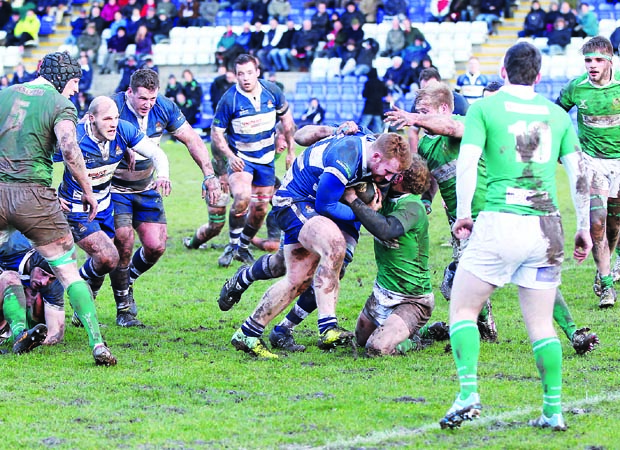 The debate by the RFU council this week about the restructuring of lower leagues has opened a can of worms that in some ways would have been better to have remained shut.
The debate by the RFU council this week about the restructuring of lower leagues has opened a can of worms that in some ways would have been better to have remained shut.
Council member John Douglas has spent a lot of time evaluating massive amounts of information and opinions from any number of club officials in preparation of his recommendations to council – but sadly that may prove a waste of time.
One fact that dominates the game of rugby is what one club feels is right for themselves will be totally different to virtually any other club.
Each club will have their own unique problems to deal with that will be handled by a number of unpaid administrators in different ways and they will try to find the best outcome for the needs of their club, given various factors such as finance and numbers.
The league structure is not perfect but wholesale changes will create a number of problems if clubs feel that their opportunities have been stifled by any changes enforced by Twickenham.
Even before John Douglas delivered his plan to the council, a number of clubs in National One had raised objections to a proposed suggestion that the league should be reduced in club numbers.
Given the fact that the RFU had made the promise that there would be unfettered access to promotion, any change in a league structure is bound to impact on those who feel either their access to, or position within, a league has been affected.
In order to make a league smaller you have to relegate more teams than you promote and therefore a team that would have worked extremely hard to survive and thought they were safe, will find that they have been relegated.
Then add to that the idea of rolling substitutions to allow more game time for younger players, which may seem good on paper, but it is fraught with challenges.
Most players want to be involved from the start to the end of a game and will assume that if selected they will play the majority of the game; rolling subs will change the whole dynamics of the game and will, in all probability, drive more players out of the game.
Back when I first joined a club (Old Albanians) it was the norm for young players to start in the lower teams and work their way up through the sides to the first team.
The idea that young players would be brought straight into the senior first team squad and used as rolling subs would have seemed preposterous and potentially dangerous, as players had to prove themselves in a club's lower sides to show they were capable of playing at first team standard.
Rugby, despite all the changes, remains a habit game and that means simply that for clubs to retain players they must provide games, full games for all every week.
Rolling subs could also raise issues over the size of match day squads and that, in itself, would create any number of problems.
Will match day squads be increased in size at all levels and for all teams? If not then all that will happen is that players will be pulled in from lower teams to sit on the bench.
If, as a grassroots club you currently field three senior teams and have a relatively large youth section but do not have enough senior players (or money) to field a fourth team, where would you get the extra players needed for rolling subs?
Do you close down your third team and split the players between the seconds and the firsts? Or do you rush young players just out of the youth section into the adult game using them as rolling subs in a game they have never played?
The youth game is played under different Laws to the senior game, particularly when it comes to the front row and it could take a few years before young players were capable of protecting themselves.
Although the concept of rolling subs may actually be a good thing at Premiership level, because the clubs keep a number of academy players involved at the club but are unable to give them much game time, grassroots rugby is different. Most clubs don't have a large number of spare players attached to the club that they can call on to sit on the bench even with a promise that they will get at least a part of a game.
When leagues were sold to the club game the RFU made two promises, one as mentioned was unfettered access (promotion and relegation), which is just about surviving despite restrictions based on ground size etc, the other was increased funding as clubs made their way up the leagues.
The fact that the RFU have effectively stopped direct funding to all levels below the Championship is as much to blame for the decline in the number of adult teams as the league structure itself.
Leagues are based on the results of the first team and because of that many clubs chose to invest in their first team and have provided the extra finance by reducing the number of teams they put out each week.
Many of the schemes dreamt up to help fund the excesses of the Premiership like the EQP payments and match day squad payments, have taken money from the grassroots game.
With the Premiership now starting to generate more of their own money through Europe etc, it is perhaps time for the RFU to reassess the balance and take back some of the money to help fund the development of the wider game.
If the RFU want to ensure that the large influx of youngsters wanting to play our game after what we hope is a successful World Cup is not just a ‘flash in the pan', they will have to seriously think about re-establishing some form of direct funding to all member clubs. Shuffling the leagues won't help clubs to find the revenue that fielding extra teams cost.




























Pingback: website here